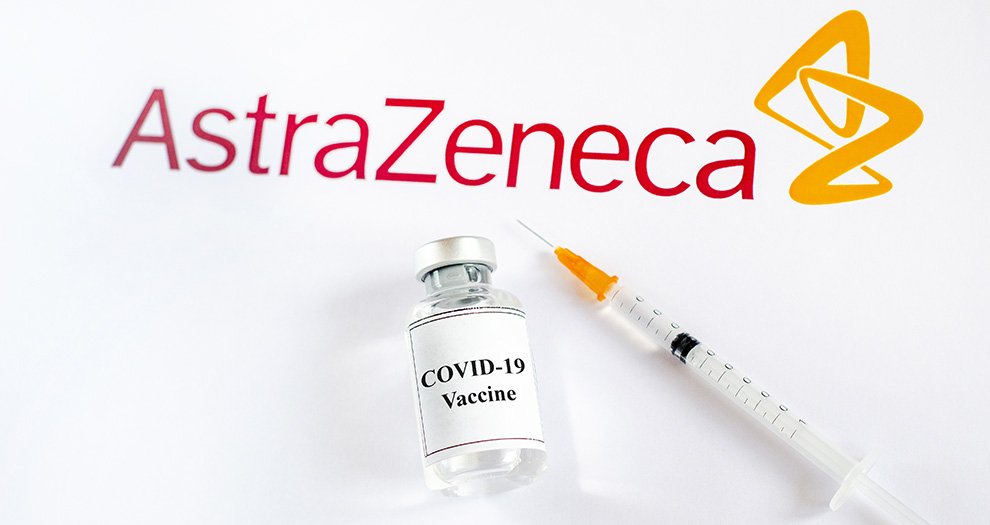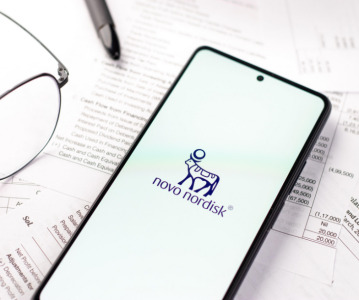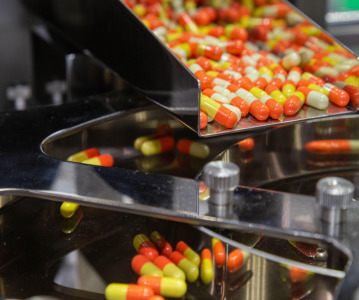EU delivers export threat after AstraZeneca cuts Q1 vaccine supply

European Commission pressures pharma firm over reduced shipments amid criticism for slow vaccine rollout across block
The European Union has threatened to restrict EU exports of COVID-19 vaccines to third countries after pharma firm AstraZeneca said it was reducing first quarter shipments of its COVID-19 vaccine to the block due to production problems.
Already smarting from reduced Pfizer/BioNTech vaccine supply, the European Commission said it had also proposed the introduction of an “export transparency mechanism” to keep track of all COVID-19 vaccine shipments leaving the block.
Last week, AstraZeneca unexpectedly advised the European Commission of its intention to supply “considerably fewer” doses in the next few weeks than was originally agreed, citing production issues at one of its European facilities.
In August 2020, the EC agreed a supply contract with AstraZeneca for 300 million doses of the vaccine, with an option to purchase 100 million more, on behalf of EU member states.
Of the 100 million doses originally expected in the first quarter of this year, the revised deliveries could now amount to only 40 million shots.
At the time of writing, the AstraZeneca vaccine – which it developed with its partner, the University of Oxford – was on the cusp of receiving the regulatory green light from the European Medicines Agency (EMA).
According to Bloomberg, EU member state governments and AstraZeneca executives were due to discuss the issue again Wednesday evening.
The European Union has been criticized for its sluggish vaccination program so far, which currently lags way behind the pace set by countries such as Israel, the UK and the US in terms of the percentage of the population inoculated.
'Unacceptable'
In a statement Monday, the European Commissioner for Health and Food Safety, Stella Kyriakides, branded the revised schedule “unacceptable” and said she wanted “satisfactory” answers to certain questions: “The European Union wants to know exactly which doses have been produced by AstraZeneca and where exactly so far and if or to whom they have been delivered.”
Kyriakides pointed out that the European Union has supported the rapid development and production of several vaccines against COVID-19 to the tune of €2.7 billion and helped to fund the development and production of the AZ vaccine.
“The European Union wants the ordered and pre-financed doses to be delivered as soon as possible. And we want our contract to be fully fulfilled,” she said.
The EU now wants clarity on transactions and full transparency regarding the export of vaccines from Europe. To that end, all companies producing COVID-19 vaccines in the EU will have to provide advance notification whenever they intend to export the vaccines to third countries.
In an interview with Italian newspaper Repubblica published Tuesday, AstraZeneca chief executive Pascal Soriot said that under the terms of the contract his company signed with the European Commission, it was not under strict obligation to deliver doses on time and had only committed to meet European demand to its “best effort.”
When asked why AstraZeneca’s vaccine production facilities in the UK had not experienced similar issues to those in the EU, Soriot said the company’s supply contract with the UK government had been signed three months before the one with the EU “and therefore we had time to prepare and resolve similar problems while awaiting UK regulatory approval.”
In the interview, Soriot also revealed that the UK government had stipulated in its supply deal with AstraZeneca that it should have priority access to all doses produced within the UK. “In the agreement we signed with the EU, however, it says that the European supply could also come from the UK, but only as a secondary possibility,” he said.
Soriot said that the company would resume its EU vaccine production at maximum capacity “between February and March.”
Related News
-
News Pharmapack Awards 2024 Patient-Centric Design Award Winner – Dr Ferrer BioPharma
The 2024 Pharmapack Awards celebrated the best in innovation and design for the pharmaceutical packaging and drug delivery industry on January 24, 2024. -
News Women in Pharma: Minding the Gap at Pharmapack 2024
2024 marks the first year Pharmapack will host a Diversity track dedicated to bridging the gap within the pharmaceutical packaging and drug delivery sector. The track includes a panel discussion on 'Enabling Diversity in the Workplace,' focused... -
News Pharmapack Awards 2024 - Celebrating Packaging and Drug Delivery Innovation
The 2024 Pharmapack Innovation Awards ceremony celebrated the best in pharmaceutical packaging and drug delivery innovation at all levels. The awards were held on January 24, 2024 at the Paris Expo Porte de Versailles. -
News 2024 Pharma Industry Trends Outlook: Collaboration, Market Maturity, and Digital Futures
The annual CPHI Online 2024 Pharma Trends Outlook, in partnership with Arvato Systems, identifies 12 key industry trends shaping the life sciences industry in the coming year. -
News New Novo Nordisk AI hub for drug discovery to open in London, UK
Danish pharmaceutical giant Novo Nordisk will be opening an AI-based research facility in the heart of London to advance drug discovery operations. -
News BioNTech to begin mRNA vaccine manufacturing in Rwanda by 2025
German biotechnology company BioNTech has stated their intentions to begin production at their mRNA vaccine factory in Rwanda by 2025, which will mark the first foreign mRNA vaccine manufacturing site on the continent of Africa. -
News Women in Pharma: Looking back on 2023 and moving forward to 2024
In this monthly series, we interview women from across the pharmaceutical industry and supply chain to discuss the importance of gender diversity in healthcare, the workplace, and beyond. -
News CPHI Barcelona 2023: Partnering for Success – Managing Outsourcing Relationships to Optimise Manufacturing Operations
During CPHI Barcelona 2023, insightful content sessions offered attendees the chance to explore trending topics with expert speakers and panellists. Here, we summarise what the pharma industry and supply chain are talking about the most.
Position your company at the heart of the global Pharma industry with a CPHI Online membership
-
Your products and solutions visible to thousands of visitors within the largest Pharma marketplace
-
Generate high-quality, engaged leads for your business, all year round
-
Promote your business as the industry’s thought-leader by hosting your reports, brochures and videos within your profile
-
Your company’s profile boosted at all participating CPHI events
-
An easy-to-use platform with a detailed dashboard showing your leads and performance







